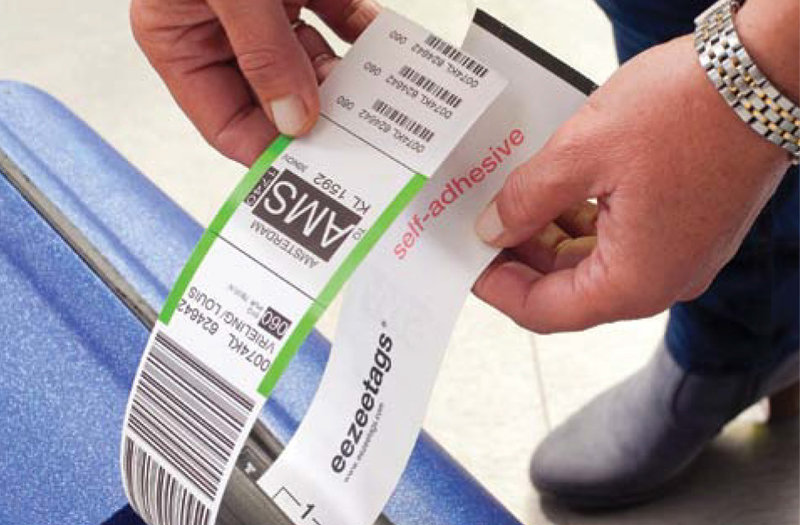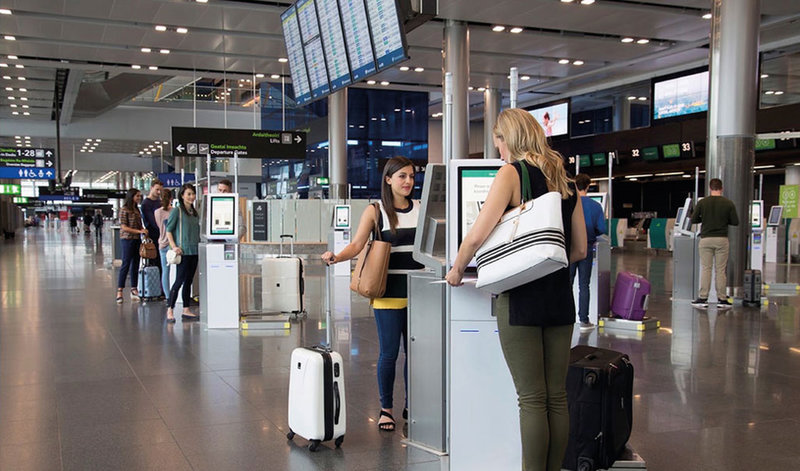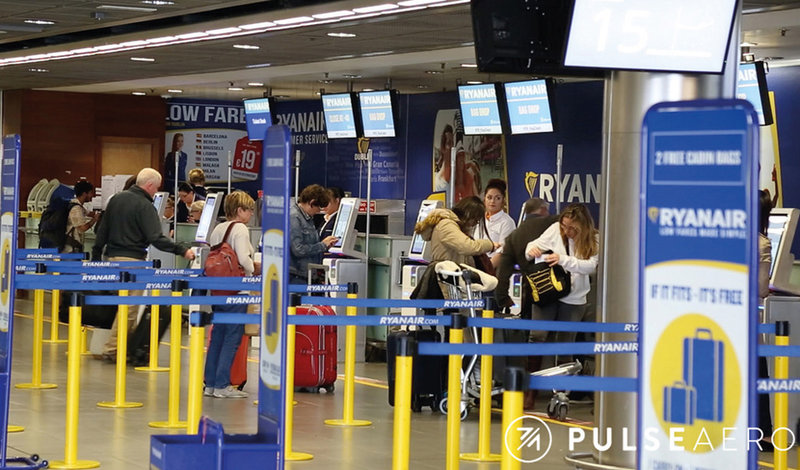Company Insight
Sponsored by Eezeetags
Lose the queues
Foolproof luggage tags are essential as more airports adopt self-service bagdrop kiosks to improve the passenger experience. Borry Vrieling, founder and managing director of eezeetags, discusses the future of the check-in process and the company’s latest achievements.
Image: copyright
As budget airlines proliferate in Europe, its aviation industry has begun to move away from the ‘hub and spoke’ model. As a result, passengers are increasingly likely to mentally separate airports from airlines, viewing the latter as an independent brand that functions as a gateway to a multitude of travel options. Common-use, self-service bagdrop kiosks designed to streamline the check in process are one of the harbingers of that change.
London Gatwick Airport opened self-service bagdrop facilities for easyJet at its North Terminal late last year. They were soon also adopted by British Airways; Westjet, Tui and Thompson will follow suit later this year. The units weigh luggage, guide passengers through checking in if necessary and dispense do-it-yourself tags.

The man behind those tags is Borry Vrieling, the founder and managing director of eezeetags. He says the company’s partnership with easyJet has succeeded in significantly cutting down queues to free passengers to eat, drink and go shopping.
“Before there was a London North Terminal self-service position, the peak waiting times were around an hour or more,” he reveals. “Since it opened, easyJet has reported that only one passenger had to wait more than six minutes.”
Vrieling sees the changing role of airports as a positive development for passengers. “In the end, it will give them a better service: it will result in less queues, more flexibility,” he predicts. “If you are depending on one counter for one airline and there is a queue, you don’t have a choice.”

Common wisdom
As airports search for ways to maximise their increasing passenger numbers and accommodate the wealth of new airlines that have entered the field in recent decades, self-service can help them solve several problems at once.
“A growth rate of over 10% for each airport is quite normal these days,” Vrieling says, “but you have to lower operational cost, and you don’t need to compromise on the passenger experience. The only way that airports can achieve that is common-use technology.”
Coated with an adhesive that sticks only to itself, and printed with simple pictorial instructions, Eezeetag bag tags are “common-use capable”, designed to be used by any passenger or airline around the world. The adhesive stops passengers from applying the tags incorrectly and keeps waste to a minimum by removing the need for a peel-away liner. The designs of the tags and computerised kiosks are geared towards simplifying the process so that airports can handle check-in with smaller teams of floorwalkers, which can focus on those passengers with more complex requirements.
“It is all about the details,” says Vrieling. “If it takes you ten minutes to figure out how to tag a bag, the whole kiosk has no point any more. The airports are not only putting in technology, they are also putting in a new end-to-end passenger process.

Double the benefit
eezeetags doubled its production of tags in 2016, and then again in the first quarter of 2017. A more heavily automated production process is planned, along with improvements to the material of the tags themselves. The company recently signed a five-year contract with Hamburg Airport for self-service bagdrop facilities to be installed in June, and new partnerships are also under discussion in Indonesia and Taiwan.
“I’m very confident that eezeetags will reach its goal – for this year, it’s to double turnover again, and maybe even do a little bit better than that,” says Vrieling.
For his next move, Vrieling is looking at options to remove the bagdrop process from the terminal completely. Off-airport solutions such as collecting bags from hotels or dropping them off in parking lots smooth the process even further, resulting in passengers who are more relaxed when they eventually reach the terminal.
Vrieling acknowledges that his company’s tags are only “a tiny little part” of the bagdrop process, but a process only functions well if all its components are well designed. As self-service bagdrop evolves, eezeetags’ attention to detail will be the key to cost-efficiency.
Contact details
eezeetags
Techniekweg 1a
3481 mk Harmelen, Netherlands
Tel.: +31 348 560077
Fax: +31 348 557476
